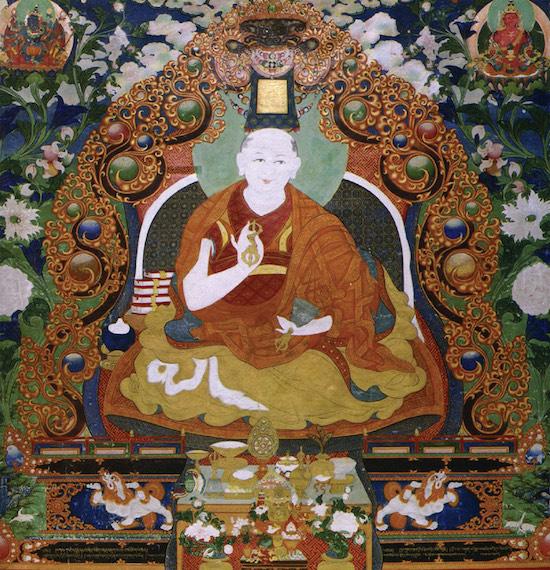
The Father of Mongolian Culture, Undurgegeen Zanzabazar
Gan-Ochir Buyanaa (Mongolia National University School of Law & MIASU Visiting Scholar)
The 'Father of Culture' study encompasses more than 30 topics, aiming to elucidate why Undurgegeen Zanabazar holds the title of the father of Mongolian culture.
In the 16th century, as Buddhism spread through Mongolia, the nation grappled with complex geopolitical and social challenges. Concurrently, during the 16th century, Mongolia diverged from Chinese Confucianism and Russian Orthodoxy, embracing Buddhism as the state religion. At the tender age of five, Zanabazar, the second son of Tusheet Khan Gombojav of Khalkh, ascended to the role of the leader of Mongolian Buddhism in 1640. This era heralded a renaissance for Mongolian society, breaking free from over two centuries of crisis.
Undurgegeen Zanabazar was not just a figurehead but a remarkable and deeply conflicted scion of Genghis Khan's lineage. He is celebrated as the architect of Mongolia's cultural foundations spanning a millennium of independence. Paradoxically, he bore the nation's hardships of that era as well.
Zanabazar, a brilliant polymath, public intellectual, strategist, scientist, anthropologist, and philosopher, earned numerous accolades. The title 'Father of Culture' was bestowed upon him because he possessed an intimate knowledge of Mongolian life beyond Buddhism, a deep understanding of nomadic agriculture transcending art, a profound influence on educational principles compared to religious sermons, and a penchant for conveying ideas by intertwining them with everyday household life, rather than mere preaching.
Research Plan :
The 'Father of Culture' study is slated for 2023-2025. This endeavor includes source collection, topic refinement, visits to historical sites, collaborations with partner institutions such as the University of Cambridge and National University of Mongolia, Central Gandandegchel Monastery, program development, and publication of topic-specific books. Future plans involve visits to Chinese and Russian archives and liaising with the Dalai Lama's office.
The research on Zanabazar, Yesterday and Today :
The confronts a significant challenge rooted in Mongolia's socialist past. It has discouraged Mongolian researchers from developing their own theories, fostering a dogma that Mongolia does not generate theories. Consequently, research has been saturated with overly generalized conclusions. Furthermore, during the era of democracy, both cultural and academic research took a back seat as they were deemed irrelevant to government priorities, with an exclusive emphasis on economic growth.
One of the great victims of this is High Theology. Because to this day, the High Theology is not fixed on its ideals. Religious people saw him only as a religious leader, historians saw him as a statesman, and art people saw him as an artist. However, he was the father of the culture that reformed and created the social architecture of the new Mongolia. It is our fault that we studied the physical heritage of Zanabazar and neglected the intangible heritage. Therefore, Mongolians seem to know the Undurgegeen Zanabazar, but they don't know him at all, and they seem to know him, but they don't know him anymore.
For instance, academic conferences in Mongolia are convened once every decade, yet they remain largely symbolic. Approximately 70% of presentations revisit topics from previous conferences, sources are repetitive, and innovative ideas and theories remain scarce.
This study, focusing on the figure of Undurgegeen Zanabazar as the 'Father of Culture,' refrains from drawing conclusions about the political dynamics or conflicts between Zanabazar and Galdan Boshig Khan.
The study's core content explores the introduction of Buddhism as a unifying ideology, knowledge system, and educational framework. However, it challenges the notion that only religious elements were imported from contemporary premises.
